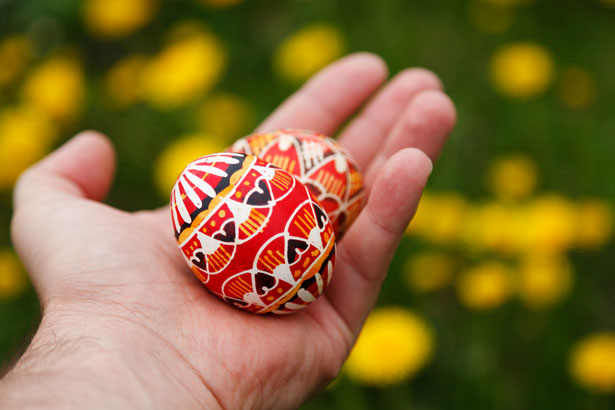

This year Easter comes hot on the heels of both Valentine’s Day and Mother’s Day and since Christmas, the shops have been packed full of chocolate gifts of all shapes and sizes.
Every year the choice of chocolate eggs becomes more and more overwhelming and it’s difficult to work out what’s a good buy if you are watching the pennies but want great quality chocolate. Or maybe you are looking to spoil yourself this Easter and don’t mind paying a little more for great flavour and good looks….
Here are a few tips from Vorrei on what to look for when selling out for the perfect Easter egg:
1) Keep it simple
Chocolate Easter eggs with sugary coatings or those filled with fondant or caramel centres have far more additives and ingredients that are potentially bad for you than just plain, ordinary chocolate.
2) Opt for high-quality chocolate
Go for quality rather than quantity. Choose a smaller, simpler egg. It may be a little more expensive but you really do get what you pay for!
The better the chocolate, the more you will take the time to relax and enjoy it, which means you’re more likely to stop eating when you feel full!
3) Choose an egg with a high percentage of cocoa
In a good quality chocolate you’ll find a larger proportion of cocoa solids, (combined cocoa mass and cocoa butter, in varying ratios) in cheaper chocolate there isn’t much at all if any. Forget about white chocolate as it contains absolutely no cocoa!
Chocolate made with a high proportion of cocoa solids is good for you because it contains nutrients, as well as the compounds that affect your mood and give you that feel-good factor.
Standard dairy milk chocolate often contains as little as 20% cocoa solids; and is instead made with milk solids, vegetable oil and sugar. Good-quality dark chocolate contains at least 60% cocoa solids.
4) Watch out for added vegetable fats
The addition of vegetable fats helps reduce potential problems with melting and cracking and make the egg stronger and they are of course much cheaper than cocoa. This is great for the manufacturers but not so good for you! When vegetable oil is added the chocolate loses its crisp ‘snap’ and real chocolate flavour.
5) Beware especially of palm oil…
Anti-palm oil groups blame the product for large-scale deforestation in Malaysia and Indonesia and for killing wildlife. Unfortunately, a number of famous brands rank poorly when it comes to sustainable palm oil use.
6) And additives, colourants and artificial flavourings
Additives are used during the manufacture of commercial Easter eggs to make the shells nice and thin, to add colour to the sugar coatings and to create sweet and gooey centres.
The additives most commonly found in cheaper Easter eggs are E442 and E476. It’s better to avoid both of these if you can. The first are ammonium phosphatides, emulsifiers that improve the handling of chocolate during processing and the second are polyglycerol esters of fatty acids that help to create those thinner shells. These substances are both highly processed and offer no nutritional or health benefits.
7) Dark is best
Dark chocolate contains a higher concentration of cocoa, so it’s better for you. It’s full of antioxidants and as it’s so much richer you are likely to eat less of it.
8) Look for artisan chocolate
Buying from a smaller supplier means that the chocolate has not been mass-produced in huge quantities, so it won’t be bulked out and the flavours will be so much better.
For superb taste and great quality, check out Vorrei’s range of gorgeous hand-made Italian Easter eggs at www.vorrei.co.uk/Easter-/. They are just £10.50 each or two for £19.

Leave Your Comments